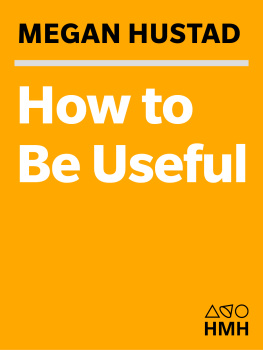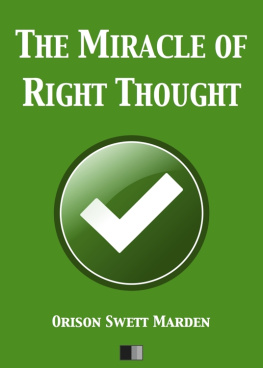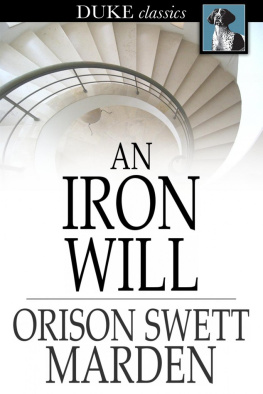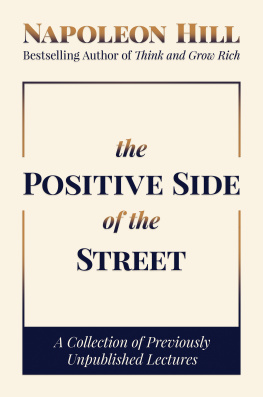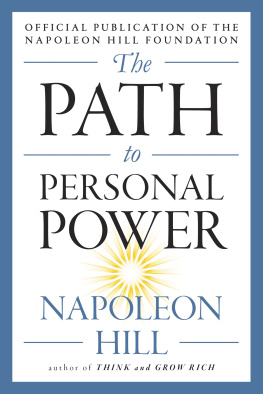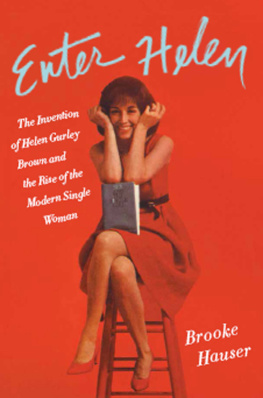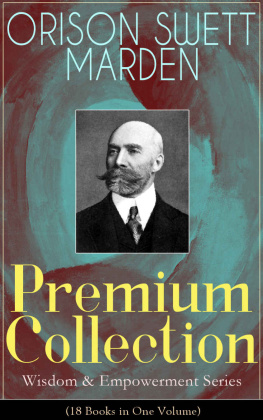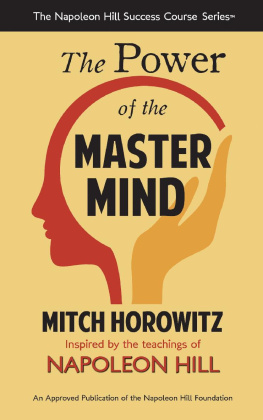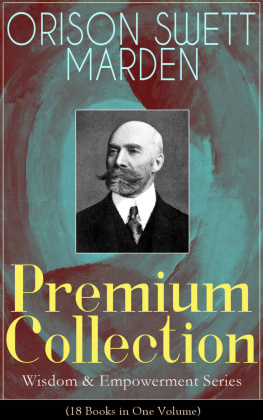Copyright 2008 by Megan Hustad
All rights reserved
For information about permission to reproduce selections from this book, write to Permissions, Houghton Mifflin Harcourt Publishing Company, 215 Park Avenue South, New York, New York 10003.
www.hmhco.com
Library of Congress Cataloging-in-Publication Data
Hustad, Megan.
How to be useful : a beginners guide to not hating work / Megan Hustad.
p. cm.
Includes bibliographical references and index.
ISBN -13: 978-0-618-71350-9
ISBN -10: 0-618-71350-6
1. Success in business. 2. Career development. 3. Job satisfaction. 4. Success. I. Title.
HF 5386. H 97 2008
650.1dc22 2007038413
e ISBN 978-0-547-34399-0
v2.1213
Selections from Sex and the Single Girl and Sex and the Office appear courtesy of Helen Gurley Brown.
Excerpt from The Office, series 1, episode 3, written by Ricky Gervais and Stephen Merchant. The author gratefully acknowledges permission
to reprint.
AUTHORS NOTE
This book includes many anecdotes from people kind enough to share their impressions and experiences with me. Names of individuals, some job descriptions, genders, most places of residence, and occasionally company names have been changed to disguise those who violated non-disclosure agreements and/or their better judgment.
for Amy
When the individual does move into a new position in society and obtains a new part to perform, he is not likely to be told in full detail how to conduct himself.
ERVING GOFFMAN ,
The Presentation of Self in Everyday Life
The unvarnished truth is almost all of the people you meet feel themselves superior to you in some way, and a sure way to their hearts is to let them realize in some subtle way that you recognize their importance, and recognize it sincerely.
DALE CARNEGIE ,
How to Win Friends and Influence People
Theres just no point in behaving like a shit.
KEIRA KNIGHTLEY ,
as quoted in Elle magazine
Introduction
W HATS IT LIKE to work in an office? Its difficult to get excited about, for one. The prospect of cubicles, giving your day over to a corporation, having to tell some coworker named Dan that hes got cream cheese on his chinnone of this sounds appealing. The benefits of working 9 to 5 also seem more meager than they have in the past. That is, meager compared to the poolside cocktails bonanza some people are enjoying. Somewhere between your morning shower and sinking into your IKEA chair, youre bound to be remindedby a magazine cover, or a reference to Filthy Rich: Cattle Driveof the hordes of celebutards getting paid to do nothing, or to DJ, or to just be mildly clever.
Then theres the problem that job descriptions often fail to communicate the many nuances of being a corporate underling, so your expectations get skewed. Ben, a trainee architect at a Washington, D.C., commercial real estate firm, had an illuminating episode his first week on the job. Day three, his boss asked him to get rid of some empty cardboard boxes from an Amazon.com shipment. These boxes had been cluttering up the hallway for the better half of two weeks and she just wanted them gone. So Ben called the downstairs switchboard because his boss had given no instructions and he had no idea whom to talk to about this. He got nowhere. Later that afternoon, with the problem still unsolved, Ben poked his head into his bosss office to say that hed been as yet unsuccessful in finding someone to come collect them. She examined him for a few seconds before speaking. You, she said slowly. The person who throws away boxes here is you.
Then theres the inconvenient truth that four years of college actually breeds many habits that are completely at odds with the demands of most offices. The more expensive your education, the more time youve spent luxuriating in the highbrow, chasing idiosyncratic intellectual fascinations down rabbit holes, and watching subtitled films. Youve made your own schedule and surrounded yourself with people who dressed, acted, and thought very much like you. All this has led the author Mel Levine (Ready or Not, Here Life Comes) to claim that recent graduates generally fail to identify at all with the world of adults. One television executive I spoke to had this to say about the entry-level assistants that swung through her firms revolving doors: They either get it, or they just dont get it. And increasingly, they just dont get it.
In other words, my generation has clung more tightly to the notion of big rewards through hard work than our parents ever did.
This is pretty amazing. How is it that young people today, people who arent naive about anything else, can be so naive about making a living? Anyone who has spent any time at all in the corporate arena can tell you that diligence does not write the checks. Im going to have to take a guess herebecause how youd study the fine shadings of this particular attitude I dont knowbut I think the problem is that this naivete is coupled with a potent cynicism about careers and careerism. Of course, looking askance at eager go-getters is nothing new. This generations cynicism is different from earlier strains of job ennui, however, because as one twenty-eight-year-old told me, it infects you before you even walk in the front door. For the 1950s Organization Man, cynical is what you became when you realized that the bosss suck-up son-in-law was going to get that promotion instead of you. Its what happened to you after big dreams got kicked down the sidewalk. Now you get spoon-fed cranked-up sardonic posturing every time you turn on the television. My generation, perhaps duly exhausted by being so aggressively marketed to our entire lives, has learned to follow any earnest expression of enthusiasm with Nooo, Im being sincere because it will usually automatically be assumed otherwise. I could use numerous cultural references to illustrate this point, but heres one that might do nicely: Gawker.com recently suggested Ironic Detachment Is the New Giving a Shit as a T-shirt slogan.
What this means for the office is that a chill creeps into the air whenever the subject of ambition comes up. Not long ago, Sarah, a former colleague of mine, landed a new job and was given the traditional perimeter tour of her new office. This meant fifteen minutes of stopping at every door and cubicle, and the requisite trading names, preliminaries, and nice to meet yous. Later, over lunch with her tour guide, Sarah brought up one woman she couldnt get a good read on. So... Heidi, the blonde? Tall? Whats her story? Her tour guide winced. Heidi? Yeah, shes good, smart. Real ambitious, though. In the next month, four more people weighed in with the same assessment of Heidi, and every time, Shes ambitious was inflected the way you might whisper, She has hepatitis B. Hard to recall the particulars of how its transmitted, maybe, or what it does, exactly. You just know you should avoid intimate contact.
Earnest job ambition has indeed become unfashionable. You just cant seem to want the things you want, Steven, a writing instructor, confessed to me. Its not smiled upon. Stevens assessment was partly a function of where hed previously workedthe hyper-snotty halls of glossy magazine publisher Cond Nastand the arty leanings of the crowd he ran with. But with that phrasecant seem to want the things you wanthe put his finger on something significant, which is that this ironic detachment doesnt run deep. Of course young people want to do well. Of course they dont want their life choices to be severely constrained by lack of funds. Of course theyd like to see Rome. But they get pushed toward a mindset that privileges being cute and clever, plugging away, and uh, yeah, thats about it.
Next page
